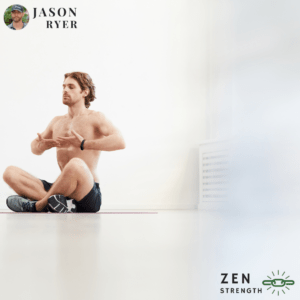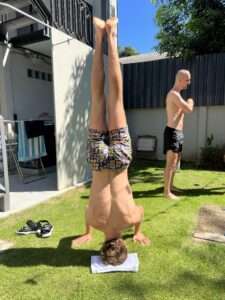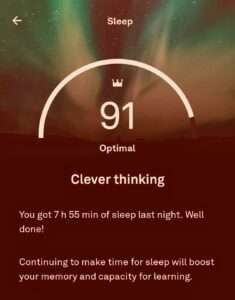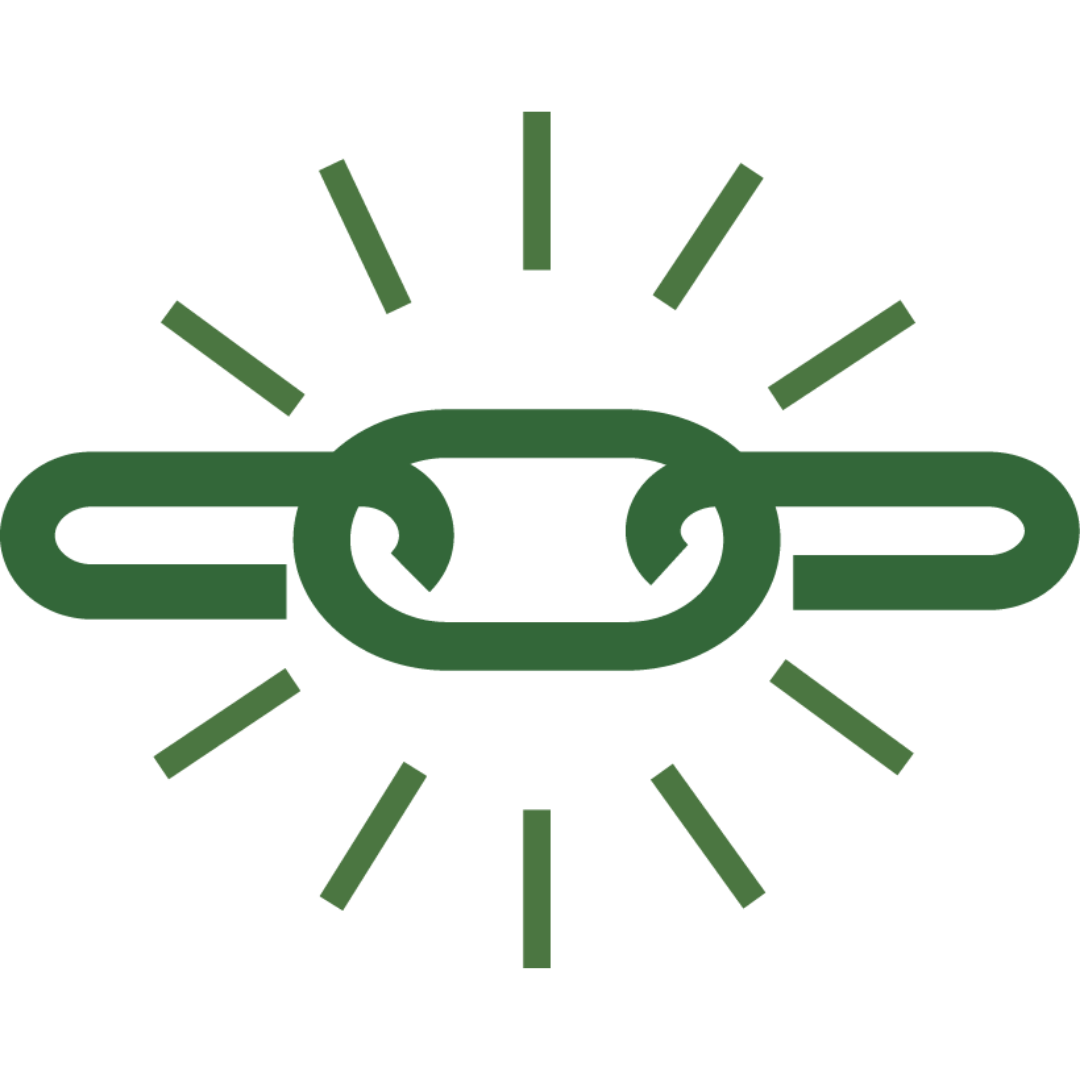From Freight Train Snorer to Sleep Expert: My Raw Journey to Optimal Sleep
Look, I’m not going to sugarcoat this – I used to be a terrible sleeper.
We’re talking freight-train snoring that was hard to ignore. I’d routinely stop breathing in my sleep, sometimes jerking awake gasping for air like I was drowning. Classic sleep apnea symptoms that I ignored for years because, hey, I was “young and healthy,” right?

My nightly routine was a masterclass in what not to do:
- Staying up late watching mindless TV
- Using alcohol to “help me relax”
- Late-night snacking (okay, let’s be honest – full-on meals at midnight)
- Blue light blasting my face until the moment I tried to sleep
- Zero awareness of my breathing patterns or sleep environment
Through my deep dive into health and wellness, specifically biohacking, my sleep began improving dramatically. As I implemented better health practices, my sleep naturally got better. But I knew there was still room for improvement.
Most people’s first stop on the bad sleep train? Sleeping pills. According to recent CDC data, about 8.4% of Americans pop pills to knock themselves out. But I got lucky. Through my dive into biohacking and natural health optimization, I stumbled onto something better: the science of sleep training.

“Sleep is the single most effective thing we can do to reset our brain and body health each day.” – Dr. Matthew Walker, Professor of Neuroscience and Psychology at UC Berkeley
Instead of masking my sleep issues with pills, I started addressing the root causes. And wow, did things start changing fast. My snoring? Dramatically reduced. Those terrifying moments of not breathing? Significantly improved. But here’s where it gets interesting…
After implementing all these “healthy” changes and feeling pretty proud of myself, I got my first Oura ring. You know those moments in life when you think you’re crushing it, and then reality checks your ego? Yeah, that was me looking at my sleep scores.
Despite all my “improvements,” my sleep was just… okay. Not terrible anymore, but definitely not optimal. And for someone obsessed with optimization (guilty as charged), “okay” sleep just wasn’t going to cut it.
That kicked off a 10+ year obsession with understanding every aspect of sleep science and optimization. I’m talking:
- Studying advanced breathing techniques with world-class teachers
- Diving deep into circadian biology research
- Testing every legitimate sleep tracking device on the market
- Experimenting with various sleep optimization protocols
- Becoming certified in human potential coaching and breathwork

The transformation has been nothing short of remarkable. Research shows that optimized sleep can improve everything from cognitive performance to emotional regulation and physical recovery. I’ve experienced every one of these benefits firsthand, and now I help others achieve the same results through my sleep training classes and coaching.
But here’s the thing – this isn’t just about sleeping better. It’s about transforming your entire life. When you dial in your sleep, everything changes. Your energy levels skyrocket. Your mental clarity sharpens. Your emotional resilience strengthens. Even your physical performance improves – studies show that proper sleep can enhance athletic performance by up to 30%.
Think about it: we spend one-third of our lives sleeping. If you’re not optimizing that time, you’re leaving an enormous amount of potential on the table. That’s why I’ve dedicated myself to helping others optimize their sleep through comprehensive sleep training courses that actually work.
In the sections that follow, I’m going to break down everything I’ve learned about optimizing sleep – from the basic foundations to advanced biohacking techniques. We’ll cover breathing protocols, light exposure, nutrition timing, temperature regulation, and so much more. No fluff, no nonsense – just real, science-backed strategies that you can start implementing tonight.
Whether you’re struggling with serious sleep issues or just looking to optimize your performance, stick with me. This is going to be one hell of a wake-up call.
Ready to transform your sleep?
Join me for upcoming
live sleep training classes in Chiang Mai
– or –
book a 90-minute sleep strategy session to
create your personalized optimization plan.
[ >> Message me for details << ]
The Science Behind Sleep Training: What You Need to Know
Let me tell you something that changed my entire perspective on sleep: your body will adapt to poor sleep, but it will never thrive with it.
As someone obsessed with optimization and human performance, this realization hit me hard. I’d been settling for “good enough” sleep while pursuing excellence in every other area of my life. That’s like trying to build a high-performance race car while running it on low-grade fuel.
Understanding Your Sleep Architecture
Before we dive into the optimization strategies I teach in my sleep training classes, you need to understand what’s actually happening during sleep. Think of this as your sleep blueprint.
Your sleep cycles through different stages throughout the night:
- Light Sleep (N1 & N2): Your body starts to relax and repair
- Deep Sleep (N3): Physical restoration and growth
- REM Sleep: Mental restoration and emotional processing
“The best bridge between despair and hope is a good night’s sleep.” – Dr. Andrew Huberman, Stanford Neuroscience Professor
Here’s what makes this fascinating: research shows that each stage serves a crucial function, and missing out on any of them impacts your performance the next day. This isn’t just about feeling tired – it’s about your brain’s ability to:
- Form new memories
- Regulate emotions
- Make decisions
- Maintain focus
- Control impulses
The Modern Sleep Crisis
Look, we’re living in an environment our ancestors couldn’t have imagined. Studies indicate that artificial light, constant connectivity, and irregular schedules are wreaking havoc on our natural sleep patterns.
When I track clients in my sleep training courses, I consistently see these patterns:
- Delayed sleep onset (taking forever to fall asleep)
- Fragmented sleep (waking up multiple times)
- Reduced deep sleep (the really restorative stuff)
- Misaligned circadian rhythms (your internal clock is confused)
But here’s the good news: your body wants to sleep well. It’s literally programmed for it. We just need to remove the obstacles and provide the right environment.
The Biological Sleep Drivers
Through my years of research and experimentation, I’ve identified the key biological processes that regulate sleep:
- Circadian Rhythm
- Your internal 24-hour clock
- Primarily controlled by light exposure
- Research confirms morning sunlight is crucial for setting this rhythm
- Sleep Pressure
- Builds up during waking hours
- Driven by adenosine accumulation
- Affected by caffeine and exercise timing
- Autonomic Balance
- The dance between stress and relaxation responses
- Heavily influenced by breathing patterns
- Can be trained through specific techniques
Temperature Regulation: The Forgotten Key
One of the most overlooked aspects of sleep is temperature regulation. Studies show that your body needs to drop its core temperature by about 2-3 degrees Fahrenheit to initiate and maintain sleep.
In my own journey, manipulating temperature has been a game-changer. I’ve tested everything from cooling mattress pads to precise room temperature control. The results? Temperature optimization alone can improve deep sleep by up to 20%.
The Breathing Connection
Here’s something that blew my mind when I first discovered it: your breathing pattern directly influences your nervous system state. Through my breathwork certification and extensive testing, I’ve found that specific breathing techniques can:

- Activate your parasympathetic (rest and digest) system
- Lower cortisol levels
- Improve sleep onset
- Reduce night-time awakenings
Research backs this up, showing that controlled breathing exercises can significantly improve sleep quality.
Why Traditional Sleep Advice Falls Short
You’ve heard it all before:
- “Go to bed at the same time every night”
- “Avoid screens before bed”
- “Create a relaxing bedtime routine”
While this advice isn’t wrong, it’s incomplete. It’s like telling someone who wants to get fit to “eat less and move more.” Technically correct, but missing all the nuance and science that makes it actually work.
That’s why my approach to sleep training focuses on understanding and optimizing your unique sleep biology. In my classes, we dive deep into:
- Personal circadian rhythm optimization
- Individual temperature sensitivity
- Customized breathing protocols
- Environmental light management
- Nutrition timing for sleep
- Movement patterns that support sleep
These aren’t just theoretical concepts – they’re practical tools that I’ve tested extensively on myself and refined through working with others. Each component builds on the next, creating a comprehensive system for sleep optimization.
In the next section, we’ll break down the specific strategies and tools I use in my sleep training courses to help you achieve optimal sleep. Trust me, once you understand and implement these principles, you’ll never look at sleep the same way again.
Want to learn these techniques in person?
Join my upcoming
sleep training classes in Chiang Mai
– or –
book a private 90-minute sleep strategy session
[ >> Message me to reserve your spot << ]
Beyond Traditional Sleep Advice: A Biohacker’s Approach to Sleep Training
After a decade of experimenting with every sleep optimization technique imaginable, I’ve learned one crucial truth: there are no silver bullets. But there is a systematic approach that works when you implement it correctly.
In my sleep training classes, I teach what I call the “Foundation First” approach. Think of it like building a house – you need a solid foundation before adding the fancy fixtures. Here’s how we break it down:
1. Breath Optimization: Your Sleep Switch
You know what’s wild? Most people never think about their breathing while they sleep. Yet research shows that breathing patterns directly influence sleep quality.
Here’s what I’ve discovered through years of practice and teaching:
- Mouth breathing during sleep can reduce oxygen saturation by up to 20%
- Nasal breathing activates your parasympathetic nervous system
- Specific pre-sleep breathing patterns can cut sleep onset time in half
“Breathing is the remote control of your autonomic nervous system.” – Dr. Andrew Huberman
In my workshops, we practice three key breathing protocols:
- The 4-7-8 sleep preparation breath
- Box breathing for midnight wake-ups
- Morning activation breathing for optimal waking
2. Light: Your Internal Clock’s Best Friend (or Worst Enemy)
Let me be direct: your relationship with light is probably destroying your sleep. Through my sleep training courses, I’ve seen this pattern repeatedly.
The research is crystal clear: Studies demonstrate that morning sunlight exposure can:
- Reset your circadian rhythm
- Improve sleep onset by up to 83%
- Increase melatonin production at night
My daily light protocol:
- 10-20 minutes of direct sunlight within 30 minutes of waking
- Midday sun exposure (especially during exercise)
- Strict blue light management after sunset
- Complete darkness for sleep
Pro tip: Those “blue light blocking” settings on your devices? They’re not enough. In my testing with various light meters, most devices still emit enough blue light to disrupt melatonin production.
3. Temperature: The Sleep Conductor
After tracking thousands of nights of sleep with various devices, I’ve found temperature to be one of the most powerful levers for sleep optimization.
The science backs this up. Research indicates that your body needs to lower its core temperature to initiate and maintain deep sleep.
My temperature optimization protocol:
- Cool environment (65-68°F/18-20°C)
- Warm shower 1-2 hours before bed
- Cooling mattress pad set to specific temperatures
- Temperature-regulating bedding
4. Nutrition Timing: The Forgotten Sleep Aid
Here’s something they don’t teach you in traditional sleep courses: when you eat is just as important as what you eat for sleep quality.
Through extensive self-experimentation and client work, I’ve found:
- Eating close to bedtime can reduce deep sleep by up to 30%
- Morning protein intake helps regulate evening cortisol
- Specific micronutrients dramatically impact sleep quality
My sleep-optimized nutrition protocol:
- Last meal 3-4 hours before bed
- Carbohydrate timing based on activity level
- Strategic electrolyte supplementation
- Micronutrient optimization for sleep
5. Movement: Your Sleep’s Secret Weapon
You’ve probably heard exercise helps sleep. But timing is everything. Studies show that exercise can either enhance or destroy sleep quality depending on:
- Time of day
- Type of exercise
- Duration
- Intensity

In my sleep training classes, we focus on:
- Morning movement for circadian entrainment
- Strategic exercise timing for optimal sleep
- Recovery-based movement practices
- Specific mobility work for better sleep posture
The Tech Stack: Tools I Actually Use
Look, I’ve tested pretty much every sleep gadget on the market. Most aren’t worth your time or money. But these are game-changers:

- Oura Ring for sleep tracking
- Temperature-controlled mattress pad
- High-quality red light devices
- Specific blue-light blocking glasses
- Professional-grade light meter
Advanced Optimization Techniques
Once you’ve mastered the foundations, we can explore more advanced strategies:
- Heart Rate Variability training
- Neurofeedback for sleep
- Advanced breathing protocols
- Environmental EMF management
- Strategic supplement timing
But here’s the key: none of these advanced techniques will help if you haven’t dialed in the basics first. That’s why my sleep training course starts with foundational practices before moving to advanced optimization.
Integration: Making It All Work Together
The magic happens when you integrate these elements into a cohesive system. In my workshops, we create personalized sleep optimization protocols based on:
- Individual chronotype
- Current sleep patterns
- Lifestyle constraints
- Available resources
- Personal goals
Remember: optimal sleep isn’t about following a rigid protocol. It’s about understanding the principles and adapting them to your life. That’s what I teach in my sleep training classes – not just what to do, but how to make it work for you.
Ready to transform your sleep?
Join my upcoming
sleep training workshop in Chiang Mai
– or –
book a 90-minute sleep strategy session to
create your personalized optimization protocol.
[ >> Message me to reserve your spot << ]
What Makes These Sleep Training Classes Different
Look, there’s no shortage of sleep advice out there. But here’s what I’ve learned after years of optimization and teaching: most approaches fail because they’re either too rigid or too scattered. They don’t account for real life, or they miss critical connections between different aspects of health.

The Integration Approach
My sleep training course is different because it recognizes one fundamental truth: sleep doesn’t happen in isolation. It’s connected to everything else in your life.
Here’s how we approach it:
1. Breath-Centered Foundation
Through my breathwork certification and extensive practice, I’ve discovered that proper breathing is the master key to better sleep. Research shows that breathing patterns can:
- Directly influence your nervous system state
- Affect your heart rate variability (a key marker of recovery)
- Impact your sleep architecture
“Breath is the bridge which connects life to consciousness, which unites your body to your thoughts.” – Thich Nhat Hanh
In my workshops, we start with breathing because it’s:
- Always available (no special equipment needed)
- Immediately effective
- Free to practice
- Easy to integrate into daily life
2. Light and Energy Connection
Most sleep training programs talk about avoiding blue light at night. But that’s only half the story. Through my biohacking journey, I’ve learned that managing your energy is just as crucial as managing your light exposure.

Studies demonstrate that proper light exposure:
- Regulates your cortisol rhythm
- Influences your metabolic function
- Affects your body temperature regulation
- Impacts your cognitive performance
We work on:
- Strategic light exposure throughout the day
- Energy management techniques
- Natural cortisol rhythm optimization
- Environmental light design
3. The Nutrition-Sleep Loop
One thing that sets my sleep training classes apart is our focus on the nutrition-sleep connection. Not just avoiding caffeine before bed (though that’s important), but understanding how everything you eat affects your sleep.
Through personal experimentation and client work, I’ve found:
- Meal timing can be more important than meal content
- Specific nutrients dramatically impact sleep quality
- Fasting windows can reset sleep patterns
- Hydration status affects sleep depth
4. Movement Integration
Here’s something most sleep coaches won’t tell you: how you move during the day is just as important as how you prepare for sleep at night. Research confirms that proper movement:
- Enhances circadian rhythm alignment
- Improves sleep pressure buildup
- Supports optimal temperature regulation
- Reduces anxiety and stress
Real-World Implementation
Theory is great, but what really matters is what works in real life. In my sleep training courses, we focus heavily on practical implementation:
Personalization Is Key
Everyone’s different. What works for me might not work for you. That’s why we:
- Assess individual chronotypes
- Consider lifestyle constraints
- Account for personal goals
- Create customized protocols
Progressive Adaptation
Instead of trying to change everything at once, we use a stepped approach:
- Start with the highest-impact, lowest-effort changes
- Build foundational habits gradually
- Add advanced techniques as basics become automatic
- Continuously refine based on results
Common Obstacles and Solutions
Through working with clients, I’ve identified the most common challenges:
Challenge #1: Inconsistent Schedules
- Solution: Creating flexible routines that adapt to your life
- Focus on principles rather than rigid rules
- Build in backup plans for disrupted nights
Challenge #2: Travel and Time Zones
- Strategic light exposure protocols
- Breathing techniques for rapid adaptation
- Nutrition timing adjustments
Challenge #3: High-Stress Periods
- Stress-specific breathing practices
- Environmental optimization techniques
- Recovery-focused movement patterns
The Technology Integration
While I’m a huge proponent of natural approaches, I also believe in leveraging technology wisely. In my sleep training classes, we explore:
- Sleep tracking tools and their proper use
- Environmental optimization devices
- Light therapy tools
- Temperature regulation technology
But here’s the key: technology should support your sleep, not control it.
Beyond Just Sleep
What really sets this sleep training course apart is our focus on overall life optimization. Better sleep isn’t the end goal – it’s the foundation for:
- Enhanced cognitive performance
- Improved emotional resilience
- Better physical recovery
- Increased daily energy
- Stronger stress resistance
Recent research confirms what I’ve seen in practice: optimized sleep impacts every aspect of human performance.
The Workshop Experience
When you join one of my sleep training workshops in Chiang Mai, you’ll experience:
- Hands-on practice with breathing techniques
- Real-time light exposure demonstrations
- Movement integration sessions
- Environmental optimization strategies
- Personal protocol development
And if you’re not in Chiang Mai? Book a 90-minute sleep strategy session where we’ll:
- Assess your current sleep patterns
- Identify your biggest optimization opportunities
- Create your personalized sleep protocol
- Develop an implementation strategy
Ready to transform your sleep and optimize your performance?
Join my upcoming
sleep training classes in Chiang Mai
– or –
book a 90-minute sleep strategy session to
[ >> Message me for details << ]
Taking Action: Your Path to Better Sleep Starts Now
Let’s get practical. You’ve learned about the science, understood the connections, and seen how everything fits together. Now it’s time to talk about implementation – the real-world strategies I share in my sleep training classes that can transform your sleep starting tonight.
Quick Wins: Start Here
Before diving into my sleep training course, here are some high-impact changes you can implement immediately:
1. The Morning Light Protocol
I learned this from studying with world-class researchers: your day’s sleep quality starts the moment you wake up. Studies show that morning light exposure can:
- Reset your circadian rhythm
- Improve sleep onset by up to 83%
- Boost mood and energy
My morning routine:
- Wake up at the same time daily
- Get outside within 30 minutes of waking
- Spend 10-20 minutes in direct sunlight
- Combine with gentle movement if possible
2. The Breath Reset Protocol
Through extensive testing with clients, I’ve developed a simple breathing practice that can:
- Calm your nervous system
- Reduce sleep onset time
- Improve sleep quality
The Basic Protocol:
- 4-7-8 breathing pattern before bed
- Box breathing for midnight wake-ups
- Morning activation breathing
3. The Temperature Optimization Strategy
Temperature regulation is crucial for deep sleep. Research indicates that even small temperature changes can significantly impact sleep quality.
Evening Protocol:
- Cool your bedroom to 65-68°F (18-20°C)
- Take a warm shower 1-2 hours before bed
- Use lightweight, breathable bedding
- Consider a cooling mattress pad
Common Mistakes to Avoid
Through my years of experimentation and working with others, I’ve identified key pitfalls that can derail your sleep optimization:
The “All or Nothing” Trap
Many people think they need to implement everything perfectly from day one. That’s a recipe for failure. Instead:
- Start with one or two changes
- Build habits gradually
- Focus on consistency over perfection
- Track what works for you
The Technology Obsession
While I love data and tracking, I’ve seen too many people get caught up in the numbers and forget about how they actually feel. Remember:
- Sleep trackers are tools, not rulers
- Subjective feeling matters more than scores
- Use technology to inform, not control
The Timing Mistake
One of the biggest issues I see? People focusing on bedtime routines while ignoring what they do during the day. Research confirms that daytime habits significantly impact night-time sleep.
Advanced Optimization Techniques
Once you’ve mastered the basics, here are some advanced strategies I teach in my sleep training classes:
1. Circadian Rhythm Optimization
Understanding and working with your natural rhythm is crucial. I’ve found that:
- Different chronotypes need different approaches
- Meal timing can reset circadian clocks
- Exercise timing matters more than most realize
2. Environmental Design
Your sleep environment should be a sanctuary. Key elements include:
- Light management systems
- Sound optimization
- EMF reduction
- Air quality control
3. Recovery Integration
Sleep is part of your overall recovery system. Through my training, we explore:
- Stress management techniques
- Physical recovery protocols
- Mental restoration practices
- Energy management strategies
Measuring Progress
In my sleep training course, we use both objective and subjective measures to track improvement:
Objective Metrics:
- Sleep onset time
- Number of wake-ups
- Deep sleep percentage
- HRV scores
- Temperature regulation
Subjective Measures:
- Morning energy levels
- Daily performance
- Emotional resilience
- Recovery quality
- Overall wellbeing
The Path Forward
Here’s what I’ve learned through my journey: optimal sleep is available to everyone, but it requires:
- Understanding the principles
- Implementing systematic changes
- Consistent practice
- Regular refinement
- Ongoing optimization
That’s why I’ve designed my sleep training classes to provide:
- Hands-on practice with key techniques
- Real-world implementation strategies
- Personalized optimization protocols
- Ongoing support and refinement
Take the Next Step
Ready to transform your sleep? You have two options:
1. Join My Live Workshop in Chiang Mai
Experience hands-on training including:
- Breathwork practice
- Light exposure protocols
- Movement integration
- Environmental optimization
- Personal protocol development
2. Book a Sleep Strategy Session
In our 90-minute session, we’ll:
- Assess your current sleep patterns
- Identify optimization opportunities
- Create your personalized protocol
- Develop an implementation plan
- Set up tracking and refinement systems
Ready to optimize your sleep and transform your life?
Message me to join upcoming
sleep training classes in Chiang Mai
– or –
book your personal sleep strategy session:
Diving Deeper: The Complete Sleep Optimization Experience
Look, we’ve covered a lot of ground. But there’s one thing I want you to understand about my sleep training classes: we go deep. Really deep.
The Full Spectrum Approach
When you work with me, whether in a workshop or one-on-one session, we explore every factor that impacts your sleep:
1. Breath Mastery
Through my certification as a breath coach, I’ve learned that proper breathing is the foundation of good sleep. We cover:
- Advanced breathing patterns for sleep onset
- Breathing techniques for midnight awakening
- Morning activation protocols
- Nose vs. mouth breathing impact
- CO2 tolerance training
Research shows that proper breathing techniques can reduce sleep onset time by up to 50%.
2. Light Optimization
Beyond basic blue light blocking, we dive into:
- Strategic sunlight exposure timing
- Red light therapy protocols
- Artificial light management
- Seasonal light adaptation
- Travel light strategies
3. Sound Engineering
Most sleep training courses ignore sound. We don’t. We explore:
- Optimal sound frequencies for sleep
- Environmental noise control
- Beneficial sound therapies
- Acoustic optimization
4. Nutrition & Fasting
My approach integrates advanced nutritional strategies:
- Meal timing optimization
- Fasting protocols for sleep
- Key micronutrients for sleep
- Hydration strategies
- Supplements (when needed)
“The relationship between nutrition and sleep is bidirectional – what you eat affects how you sleep, and how you sleep affects what you eat.” – Dr. Matthew Walker
5. Testing & Tracking
I believe in data-driven optimization. We cover:
- Sleep tracking interpretation
- HRV monitoring
- Temperature tracking
- Movement analysis
- Recovery metrics
6. Exercise Integration
Through years of experimentation, I’ve found that proper movement is crucial:
- Timing optimization
- Intensity management
- Recovery protocols
- Movement types for sleep
- Mobility work
7. Mindset & Psychology
The mental aspect of sleep is often overlooked. We address:
- Stress management
- Anxiety reduction
- Racing thoughts
- Sleep confidence
- Psychological safety
8. Environmental Design
Your sleep environment matters more than you think:
- Temperature control
- Air quality
- EMF mitigation
- Bedding optimization
- Room design
Advanced Topics We Explore
In my sleep training course, we also dive into cutting-edge areas:
Nootropics & Sleep
Based on extensive self-experimentation, I share insights about:
- Sleep-supporting compounds
- Timing strategies
- Stacking protocols
- Individual response patterns
Device Optimization
We cover the smart use of:
- Sleep trackers
- Temperature regulators
- Light therapy devices
- Sound machines
- Air quality monitors
Travel & Sleep
As someone who travels frequently, I’ve developed solid strategies for:
- Time zone adaptation
- Hotel room optimization
- Travel recovery protocols
- Jet lag minimization
The Workshop Experience
My sleep training workshops in Chiang Mai are immersive experiences where you’ll:
- Learn Through Practice
- Hands-on breathing exercises
- Light exposure demonstrations
- Movement integration
- Environment optimization
- Understand Your Personal Patterns
- Sleep type assessment
- Habit evaluation
- Challenge identification
- Strategy customization
- Create Your Protocol
- Personalized timing
- Environment design
- Tool selection
- Implementation planning
- Master the Tools
- Tracking methods
- Data interpretation
- Adjustment strategies
- Progress monitoring
The Strategy Session Alternative
Can’t make it to Chiang Mai? A 90-minute sleep strategy session includes:
- Comprehensive Assessment
- Current sleep patterns
- Lifestyle factors
- Environmental conditions
- Health considerations
- Custom Protocol Development
- Personalized recommendations
- Implementation timeline
- Tool suggestions
- Progress tracking plan
- Optimization Roadmap
- Short-term wins
- Long-term strategies
- Challenge management
- Success metrics
Your Next Step
The journey to optimal sleep is unique for everyone. But one thing’s consistent: it works better with guidance. That’s why I’ve dedicated myself to teaching these sleep training classes and helping others transform their sleep.
Recent research shows that optimized sleep can:
- Improve cognitive performance by up to 20%
- Enhance emotional regulation
- Boost physical recovery
- Strengthen immune function
- Increase longevity
Ready to transform your sleep and optimize your life? You have two options:
- Join my next sleep training workshop in Chiang Mai for an immersive, hands-on experience
- Book a 90-minute sleep strategy session for personalized guidance
Either way, you’ll get:
- Expert guidance based on years of research and experimentation
- Practical, implementable strategies
- Personalized recommendations
- Ongoing optimization techniques
to reserve your spot in upcoming
sleep training classes
– or –
schedule your strategy session
Your journey to optimal sleep starts here.
Remember: sleep isn’t just about rest – it’s about optimizing every aspect of your life. Let’s make it extraordinary.
Your Journey to Optimal Sleep Starts Now
Let me share something important: in all my years of biohacking and health optimization, I’ve never found a single factor that impacts overall performance more than sleep. Think about it – sleep affects:
- Your cognitive function
- Your emotional resilience
- Your physical recovery
- Your immune system
- Your longevity
- Your daily energy
Why Most People Never Achieve Optimal Sleep
Through my experience helping others optimize their sleep, I’ve identified the main reasons people struggle:
1. Information Overload
There’s so much sleep advice out there, it’s overwhelming. Everyone claims to have the “secret” to perfect sleep. The truth? Sleep optimization is both simpler and more complex than most realize.
2. Lack of Integration
Most approaches focus on isolated factors:
- Only addressing evening routines
- Focusing solely on supplements
- Obsessing over sleep tracking data
- Ignoring the connection between sleep and daily habits
3. Missing the Foundations
People often jump straight to advanced techniques without mastering the basics. That’s like trying to build a house starting with the roof.
The Real Solution: A Systematic Approach
Research shows that successful sleep optimization requires:
- Understanding sleep biology
- Implementing foundational practices
- Personalizing approaches
- Consistent refinement
- Regular assessment
That’s exactly what we cover in my sleep training classes.
What Sets This Training Apart
My approach is different because:
1. It’s Comprehensive
We don’t just focus on night-time habits. We optimize:
- Morning routines
- Daytime behaviors
- Evening practices
- Sleep environment
- Recovery protocols
2. It’s Practical
Everything we cover is:
- Implementable in real life
- Adaptable to your situation
- Based on solid science
- Tested through experience
3. It’s Personalized
No cookie-cutter solutions. We:
- Assess your unique patterns
- Identify your specific challenges
- Create custom protocols
- Adapt strategies to your lifestyle
What You’ll Learn
In my sleep training course, you’ll discover:
Foundation Level
- Proper breathing techniques
- Light exposure protocols
- Temperature optimization
- Sound management
- Nutrition timing
Advanced Level
- Recovery integration
- Stress adaptation
- Travel strategies
- Performance optimization
- Environmental design
The Results You Can Expect
When you implement these strategies, you can experience:
Short-term Benefits
- Faster sleep onset
- Deeper sleep quality
- Fewer wake-ups
- More consistent rest
- Better morning energy
Long-term Improvements
Studies indicate optimized sleep leads to:
- Enhanced cognitive performance
- Improved emotional regulation
- Better physical recovery
- Stronger immune function
- Increased longevity
Your Investment in Better Sleep
Think about this: we spend roughly one-third of our lives sleeping. That’s about 26 years for the average person. Isn’t it worth optimizing this crucial aspect of your life?
“Sleep is the greatest legal performance-enhancing drug that most people are probably not getting enough of.” – Dr. Matthew Walker
What’s Next?
You have two options to transform your sleep:
Option 1: Join a Live Workshop in Chiang Mai
Experience hands-on training in:
- Breathwork practices
- Light exposure protocols
- Movement integration
- Environmental optimization
- Personal protocol development
Option 2: Book a Sleep Strategy Session
Get personalized guidance including:
- Sleep pattern assessment
- Custom protocol creation
- Implementation strategy
- Progress tracking plan
- Optimization roadmap
The Time Is Now
Every night of sub-optimal sleep is:
- Lost recovery potential
- Decreased performance
- Missed growth opportunity
- Reduced mental clarity
- Diminished energy
My Promise to You
While I can’t guarantee perfect sleep (nobody can), I can promise you this:
- You’ll learn practical, science-backed strategies
- You’ll understand your sleep patterns better
- You’ll have tools to optimize your rest
- You’ll know how to troubleshoot sleep issues
- You’ll be equipped for ongoing improvement
Take Action Today
Ready to transform your sleep and optimize your life? Here’s how to get started:
- For Hands-on Learning: Join my next sleep training workshop in Chiang Mai
- Limited spots available
- Immersive experience
- Personal attention
- Practical implementation
- For Personalized Guidance: Book a 90-minute sleep strategy session
- One-on-one consultation
- Custom protocol development
- Implementation planning
- Progress tracking
[ >> Message me now << ]
to reserve your workshop spot
– or –
schedule your strategy session.
Your path to optimal sleep begins here.
Remember: better sleep isn’t just about feeling more rested – it’s about optimizing every aspect of your life. Let’s make it happen.
Get Your Free 10-Minute Energy Boost
Before you dive into comprehensive sleep training, let me give you something you can use right now – a powerful breathwork technique that can boost your energy in just 10 minutes.
Why This Breathwork Guide?
Through my years of coaching and teaching breathwork, I’ve found that proper breathing is your body’s built-in energizer. This isn’t just some simple deep breathing exercise – it’s a specific protocol I’ve refined through extensive testing and client work.
What makes this guide special:
- Takes only 10 minutes
- Requires no special equipment
- Can be done anywhere
- Shows results immediately
- Based on proven techniques
What You’ll Get:
✓ Professional audio guidance
✓ Step-by-step instruction
✓ Proper timing cues
✓ Expert tips for maximum benefit
✓ Instant access
Click here to download your free 10-minute energy boost breathwork guide
This is the same foundational technique I teach in my sleep training classes – it’s that valuable. Consider it your first step toward optimizing your energy and sleep.
Think of it as a “thank you” for reading this far, and a small taste of what’s possible when you understand how to work with your body’s natural systems.
Download your free guide now and experience the power of proper breathing
Remember: better breathing leads to better energy, which leads to better sleep. Let’s start with this simple but powerful practice.

